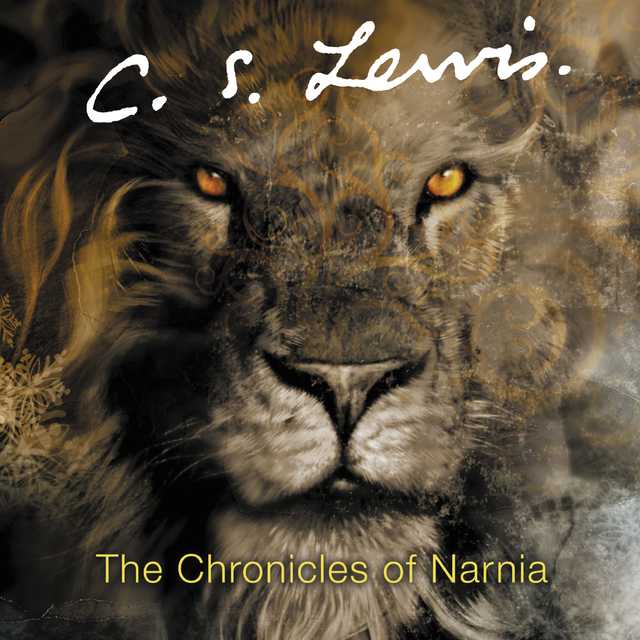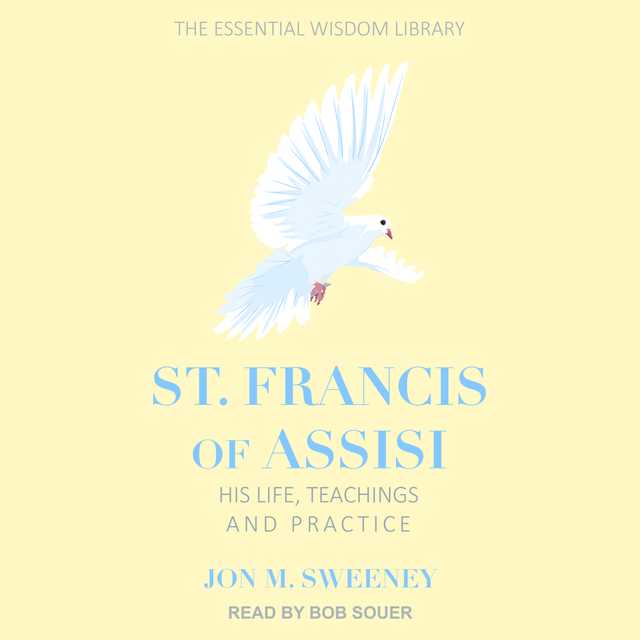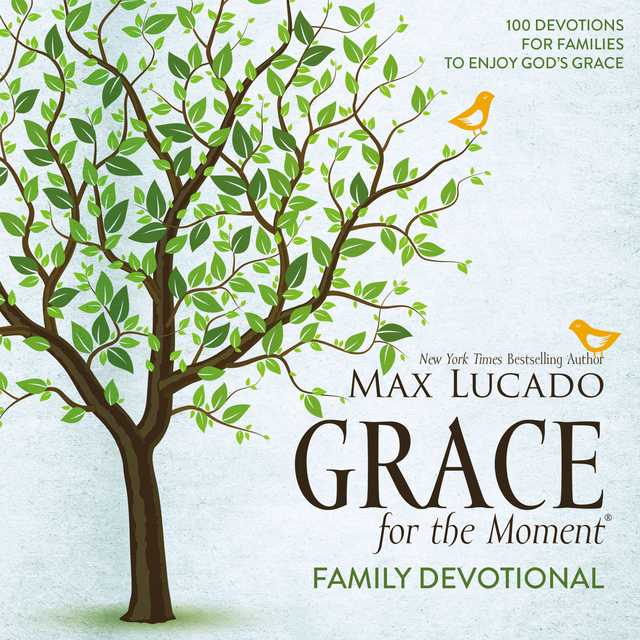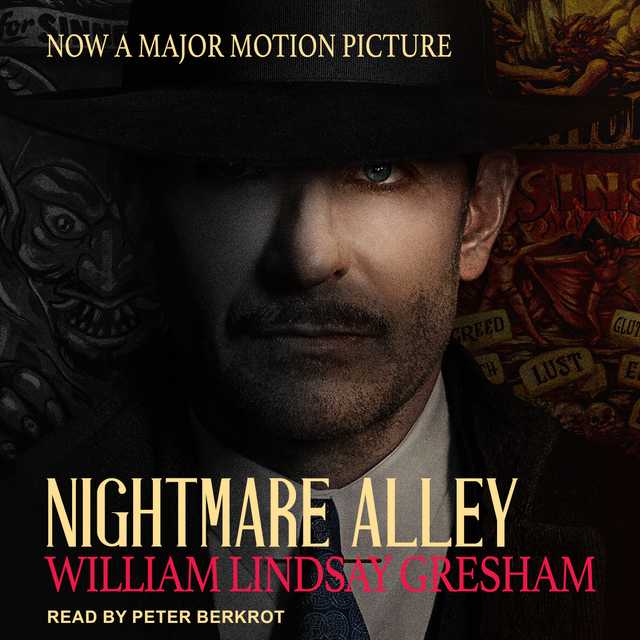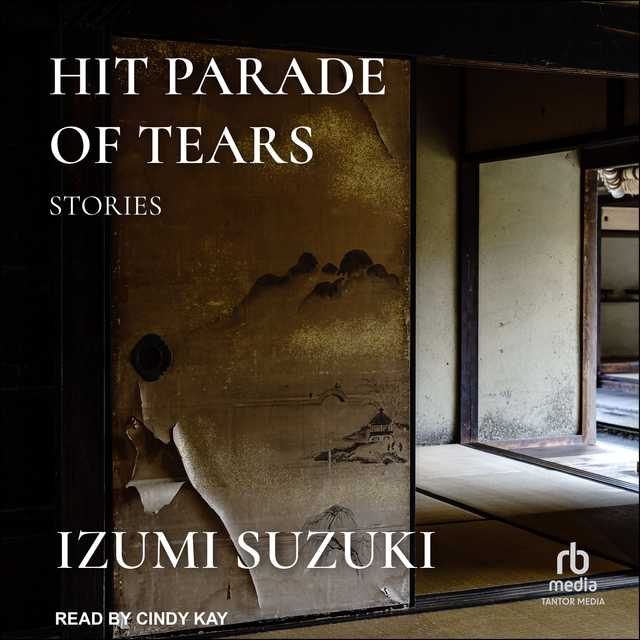The Chronicles of Narnia Complete Audio Collection Audiobook Summary
For over sixty years, readers of all ages have been enchanted by the magical realms, the epic battles between good and evil, and the unforgettable creatures of Narnia.
This box set includes all seven titles in The Chronicles of Narnia—The Magician’s Nephew; The Lion, the Witch and the Wardrobe; The Horse and His Boy; Prince Caspian; The Voyage of the Dawn Treader; The Silver Chair; and The Last Battle.
Other Top Audiobooks
The Chronicles of Narnia Complete Audio Collection Audiobook Narrator
Kenneth Branagh is the narrator of The Chronicles of Narnia Complete Audio Collection audiobook that was written by C. S. Lewis
Kenneth Branagh, was already a celebrated stage actor when, in 1988, he made his debut as a film director with Henry V; among other films he has directed are Dead Again, Peter's Friends, Much Ado About Nothing, Mary Shelley's Frankenstein, In Bleak Midwinter, Hamlet, and Love's Labour's Lost; as a performer he has been seen in Conspiracy, Celebrity, and Harry Potter and the Chamber of Secrets.
About the Author(s) of The Chronicles of Narnia Complete Audio Collection
C. S. Lewis is the author of The Chronicles of Narnia Complete Audio Collection
More From the Same
- Author : C. S. Lewis
- The Christian in the World
- Letters
- Aspects of Faith
- Preparacion para Pascua
- The Problem of Pain
- Publisher : HarperCollins
- Coraline
- Little House on the Prairie
- Little House in the Big Woods
- On the Banks of Plum Creek
- Farmer Boy
The Chronicles of Narnia Complete Audio Collection Full Details
| Narrator | Kenneth Branagh |
| Length | 33 hours 45 minutes |
| Author | C. S. Lewis |
| Category | |
| Publisher | HarperCollins |
| Release date | November 15, 2005 |
| ISBN | 9780061999888 |
Additional info
The publisher of the The Chronicles of Narnia Complete Audio Collection is HarperCollins. The imprint is HarperCollins. It is supplied by HarperCollins. The ISBN-13 is 9780061999888.
Global Availability
This book is only available in the United States.
Goodreads Reviews
AJ
July 03, 2007
When the Lion/Witch/Wardrobe movie came out a while ago, some dude accosted me and said "Dude, the fucking right wing media is trying to say that the Narnia books are all about fucking Christianity!!!"No shit. I figured that out when I was 9.But who cares? If you can't enjoy these books at all, there is no child alive inside of you. And if you've got no child inside you, you're not very much fun at all, are you?
Charlotte
October 06, 2017
I love Narnia! Of course it's not perfect, but they are such wonderful stories, paving the way for so many other fantasy worlds that followed. Sure they've got the allegorical Christian background, and some of Lewis' wording and phrases wouldn't pass as politically correct now. But if you can look past these small details, Narnia is a truly magical place, the stories iconic, I will never forget them. The Magicians Nephew"By gum," said Digory, "don't I just wish I was big enough to punch your head!"The creation story of Narnia. Young Polly and Diggory are swept up in the experiments of a magician attempting to find other worlds. In doing so they discover the beginning of Narnia, and so start off the tales. The Lion, the Witch and the Wardrobe."Course he isn't safe. But he's good. He's the king, I tell you."The most well known of the Narnian chronicles. Peter, Susan, Edmund and Lucy discover Narnia through the back of a wardrobe. Their battles with the white witch are legendary. The Horse and his Boy"Do not by any means destroy yourself, for if you live you may yet have good fortune but all the dead are dead alike."This one though based when the Pevensie children are still in Narnia the focus is on two young Calormene children, Shasta and Aravis. Having both run away - they seek a better life in Narnia, becoming involved in a battle between the Narnians and the Calormenes. Prince Caspian"But things never happen the same way twice. It has been hard for us all in Narnia before now."The Pevensie children return to Narnia after a gap of several hundred years (though to the children only 1 year of our time has passed.) They aid the rightful heir to the throne in his attempts to stop his evil uncle from destroying Narnia. The Voyage of the Dawn TreaderA swashbuckling tale full of adventures! Only Edmund and Lucy return this time, taking with them their dreadful cousin Eustace. They land on the deck of a ship with Prince Caspian - on a journey to find 7 missing dukes. The Silver Chair"He was not a perfectly enormous giant; that is to say, he was rather taller than an apple tree but nothing like so tall as a telegraph pole."Eustace returns with a school friend Jill. To find the missing Prince whose disappearance has led to numerous others going missing in search of him. Their journey takes them to the land of giants and to the world underground. Also the best character - Puddleglum the Marsh Wiggle is in this one. I love him!The Last Battle"All worlds draw to an end and that noble death is a treasure which no one is too poor to buy."A fantastic conclusion! An evil ape is using trickery and deceit to cause the Narnians to live in fear. This is the battle to end all battles and none will be the same again! 5 stars! Narnia is a wonderful place with the most incredible cast of characters. Like I said it certainly has flaws but its achievements overcome those big time!"All their life in this world and all their adventures in Narnia had only been the cover and the title page: now at last they were beginning Chapter One of the Great Story which no one on Earth has read: which goes on for ever: in which every chapter is better than the one before."
Ahmad
August 17, 2021
The Chronicles of Narnia (Chronicles of Narnia #1-7), C.S. LewisThe Chronicles of Narnia is a series of seven fantasy novels by C. S. Lewis. It is considered a classic of children's literature and is the author's best-known work, having sold over 100 million copies in 47 languages. Written by Lewis, illustrated by Pauline Baynes, and originally published in London between 1950 and 1956, The Chronicles of Narnia has been adapted several times, complete or in part, for radio, television, the stage, and film. Set in the fictional realm of Narnia, a fantasy world of magic, mythical beasts, and talking animals, the series narrates the adventures of various children who play central roles in the unfolding history of that world. Except in The Horse and His Boy, the protagonists are all children from the real world, magically transported to Narnia, where they are called upon by the lion Aslan to protect Narnia from evil and restore the throne to its rightful line. The books span the entire history of Narnia, from its creation in The Magician's Nephew to its eventual destruction in The Last Battle.Books of Chronicles of Narnia #1-7: The Lion, the Witch and the Wardrobe (1950); Prince Caspian: The Return to Narnia (1951); The Voyage of the Dawn Treader (1952); The Silver Chair (1953); The Horse and His Boy (1954); The Magician's Nephew (1955); The Last Battle (1956).تاریخ نخستین خوانش: در ماه آوریل سال 2002میلادیسرگذشت «نارنیا» مجموعه ای از هفت رمان خیال پردازانه، اثر ماندگار روانشاد «سی.اس لوئیس»، برای کودکان است؛ در هر کتاب از این مجموعه (به جز اسب و آدمش) کودکانی از دنیای ما، به صورت جادویی، به «نارنیا» منتقل میشوند؛ جایی که از آنها خواسته میشود تا به «اصلان» شیر یاری کنند، تا از پس بحران در دنیای «نارنیا» برآید؛ عنوانهای کتابها در ایران: «شیر، کمد و جادوگر (1950میلادی)»؛ «شاهزاده کاسپین (1951میلادی)»؛ «کشتی سپیده پیما (1952 میلادی)»؛ «صندلی نقره ای (1953میلادی)»؛ «اسب و سوارش (1954میلادی)»؛ «خواهرزاده جادوگر (1955میلادی)»؛ «آخرین نبرد (1956میلادی)»؛ هستند تا هستی هستتاریخ بهنگام رسانی 04/08/1399هجری خورشیدی؛ 26/05/1400هجری خورشیدی؛ ا. شربیانی
Kat Kennedy
June 07, 2010
I discovered The Chronicles of Narnia when I was six years old halfway through my first year of school. I had discovered the joys of our school library and I still remember the day and the exact shelf where I found The Lion, The Witch and The Wardrobe. It was the lowest shelf, the one that rested on the ground and I had to crouch down to wiggle the book out from amongst its peers. By the time I'd finished first grade I'd read them all and searched high and low for any book series that could be as wonderful and magical as this one had been.Now I could dismiss my love of these books as some quaint, childhood memory that I was unwilling to let go of. Certainly that is a factor. However, the magic has never faded. I've read them all so many times that I've memorized them. I've memorized them so thoroughly that I've told them as bed time stories to children that I've done baby sitting for. Children who have loved the stories and begged to go to bed early so that they could hear MORE about Diggory and Polly or Lucy, Peter, Edmund and Susan or more about Shasta and Avaris and so on and so forth.It's not just children, either. My husband and I read a book, a proper book for half an hour for our son every night. For the past month that has been The Chronicles of Narnia. It's gotten to the point where he doesn't want to stop. Our son's bedtime comes and goes and my husband insists on reading just a little bit more. He says things like, "I wish I'd read these as a child! They're fantastic!"Are they perfect? No. The Last Battle is a hard and frustrating read. The Magician's Nephew is a little awkward. The Horse and His Boy is just a TAD controversial for some of its content. But they're so, so worth the read. To me, there's a magic to these books that time and life has never managed to dim.
Jaclyn
May 02, 2008
I can't even begin to count how many times I've read "The Chronicles of Narnia." The truly amazing thing about these books is that each time you read them, they magically become more complex, more meaningful and more beautiful. I first read "The Lion, The Witch and The Wardrobe" when I was about seven or eight years old and I did not get it at all. Sure, I followed the story, but the deeper meaning was completely lost on me. Someone later told me that it was a Christian story and when I read the book again as a young teenager, I picked up on that element of it. In the many times I've read the books as an adult, I've come to find that the underlying meaning - not just of "The Lion, The Witch and The Wardrobe," but of the other books as well - becomes gradually clearer until you can't believe you didn't see it all along. The books are like Narnia itself, unfolding like an onion, layer upon layer, Narnia upon Narnia, but each layer is bigger and better than the one above it. In order of the events that unfold in the story (but not in the order that the books were published), the Chronicles of Narnia include:"The Magician's Nephew" - the Narnian creation story. Two children living in London are magically transported to other worlds and witness the dawn of Narnia. The story incorporates such familiar elements as a Tree of Knowledge and the fall of man."The Lion, The Witch and The Wardrobe" - Peter, Susan, Edmund and Lucy, four children living in England during World War II, stumble through a magic wardrobe and discover the land of Narnia, which has been ruled for hundreds of years by an evil White Witch who has cast a spell over the land so that it is always winter but never Christmas. With the help of Aslan, the great Lion, they seek to free Narnia. This is the most obvious Christian parable, as Aslan represents Jesus and the story parallels the Resurrection story."The Horse and His Boy" - Takes place during the Golden Age of Narnia, although most of the events unfold elsewhere, in the southern lands of Calormen and Archenland. Shasta, a Calormene fisherman's son, runs away when he hears his father negotiating to sell him into slavery. Together with two talking horses and a noble Calormene girl running away from an arranged marriage, he tries to get to Narnia. The book is a meditation on faith and the concept that God helps those who help themselves. It's also my favorite of the seven books."Prince Caspian" - Peter, Susan, Edmund and Lucy return to Narnia to help young Prince Caspian recapture the throne of Narnia from his evil uncle Miraz. Not the most overtly religious of the stories."The Voyage of the Dawn Treader" - Edmund, Lucy, and their obnoxious cousin Eustace, join Caspian, now King of Narnia, on a quest to find seven banished lords who had served his father. It doesn't seem all that religious until the end of the book, which encourages people to seek God in their own lives."The Silver Chair" - Eustace, whose personality has dramatically improved thanks to his time in Narnia, returns with his school friend Jill to search for Prince Rilian, Caspian's son who went missing ten (Narnian) years earlier."The Last Battle" - Eustace and Jill return again to Narnia to assist King Tirian, the last King of Narnia, in his final stand. The book is a parable of the End of Days, with chaos, confusion, war, unbelief and the worship of false gods. Tirian, Eustace, Jill and their friends can only hope that Aslan returns to Narnia to deliver them.Read them, then read them again and again and again. You won't be sorry.
Josh Hyung
December 14, 2016
The 2005 film adaptation of The Lion, the Witch, and the Wardrobe was what made me want to read this thick, heavenly book. Little yet valiant Lucy was very close to my heart, as well as her siblings who occasionally thought she was crazy. I was so enthralled by the movie, and I asked my parents if they could buy me the series for my birthday.My uncle in the US was the one who granted my wish. Tee-hee. After buying this collection from Barnes & Noble, he immediately had it shipped all the way to the Philippines. Hence, this book literally traveled to my hands. I was overwhelmed with happiness when it finally arrived. After all, it was the first series I had ever owned. After caressing it for a long time, I tucked myself into bed and got down to business.Little did I know that this would be the series that would transform me into a devoted booknerd. At the age of 12, I managed to fly through each novel because they were just so beautiful and fantastic. The perfect mix of magic, adventure, and biblical allusions captivated me from start to finish. By the time I read The Last Battle, I was already a hardcore fanboy.In totality, The Chronicles of Narnia will always have a special place in my heart (and library). Just looking at Aslan's face on the cover fills me with much happiness and nostalgia. If I were the Ruler of Books, I would require everyone in the planet to read this timeless series.
Ruth
March 28, 2008
I love how you can see Aslan as Jesus giving up his life for us. And the greater power or deaper magic that brings him back to life
Werner
September 18, 2017
Back in the early 70s, I encountered this wonderful series through the first of the books to be written, The Lion, the Witch, and the Wardrobe. (Below, I quote most of my review of that book, insofar as it applies to the whole series). I subsequently discovered the whole series, and in the 90s read it to my wife, who loved it as much as I do. We didn't read it in this omnibus edition, but as individual books; and for a long time, I intended to eventually review each book separately. But since the series has so much commonality, I decided that reviewing it as a single entity is more practical.Note: This omnibus volume lists the seven books of the series in their internal chronological order, starting with The Magician's Nephew, which describes Aslan's creation of Narnia; and this is the order in which Lewis himself recommended that they be read. Barb and I, however, read and experienced the series in the order in which the books were written. Lewis fans debate which order is preferable, and I can see both sides of that. Usually, my preference is to read a series in internal chronological order. But the way that we read this one probably provides for more of a feeling of resonance in the later ones, as certain things that were mysterious before fall into place later.Most people know that C. S. Lewis was an effective Christian nonfiction apologist, using the tools of reason and logic to build the philosophical case for Christian faith. But he ultimately became convinced that an even more effective apologetic is available through the "truth of art," the instinctive and emotional appeal that stories exert -- especially the kinds of stories that draw on the deep, mythical archetypes of fantasy to illuminate the real universe. The Chronicles of Narnia, his classic fantasy series, was the fruit of that discovery, set in Narnia, a magical land whose world lies in another universe, in which magic works and time moves differently than it does here, and in which Christ is incarnate as the great talking lion Aslan. The first book of the series presents one of the most powerful symbolic literary presentations of the Christian gospel ever written. Although the intended audience, in Lewis' mind, was children (and his various direct addresses to the readers as author presuppose this), there is nothing invidiously "juvenile" about the quality of the writing; it can be enthusiastically appreciated by anyone who loves tales of imagination and adventure, fantasy and wonder; and the truths here, like those in Jesus' parables, are simple enough to speak to children but profound enough to challenge adults.The Christian message is an essential part of all of the books in the Narnia series. We all react to fiction based partly on how we feel about the message(s) it conveys, and that's appropriate. So readers whose view of Christianity, or of religion in general, is highly negative could hardly be expected to give the Narnia series unqualified praise. (The converse applies, of course, to books like the His Dark Materials series by Philip Pullman, who avowedly seeks to be the "anti-Lewis;" it isn't surprising that his work is less appreciated by readers who hold a very negative view of militant atheism.) That's a subjective assessment, and fair enough as such. Some other criticisms of Lewis' series, though, are intended to be more objective, and can be debated objectively. (This discussion might contain some "spoilers.")One reviewer states that the series "has no real conflicts" because Aslan can exercise miraculous power to resolve them. But if this is so, then the theistic view of real life is that it has no real conflicts either, since God has miraculous power to resolve them. But no theists that I'm aware of view real life in that way, least of all Lewis, as his other writings indicate (and insights from all of his writings are valuable in interpreting the Narnia books, since his thought was highly unified). As his writings on miracles make clear, he believed that God can intervene in the natural order miraculously --but doesn't do so very often, because intervening on a wholesale basis would negate the predictability of natural law (and leave us unable to recognize a miracle when one did happen!) And, very importantly, God doesn't make people's choices for them; they exercise free will, which requires that their choices have meaningful consequences --good or bad. So in Narnia, as in the real world, Aslan doesn't intervene very often; and most readers observe quite a bit of conflict. Bad things happen, and they aren't always deserved; evil isn't automatically and instantly punished; and good characters suffer and inevitably die, some well before their time. And characters experience a good deal of conflict in struggling to decide on the right course of action --or on whether or not to do what they think is right, when all the rewards would appear to gained by doing wrong. In one of the books, Eustace is indeed changed back from dragon to boy --but only after he learns a lesson about the value of human friendship; and that doesn't come easily to him. And in the first book, yes, Aslan will be resurrected after giving his life for Edmund --but his death is still an awful experience that he undergoes for someone whose welfare, viewed from a coldly objective standpoint, is nothing to him; most of us wouldn't undergo it, even with the guarantee of resurrection.Like most non-vegetarians, Lewis views eating of meat as appropriate when the meat is that of a non- rational, nonthinking creature; eating a being who can speak is cannibalism, no matter what that being looks like. Whether or not one regards that as a significant distinction, or how significant it's seen as being, is a matter of opinion; but it is a genuine distinction between humans and, for instance, cattle.Probably the most significant criticism here is the accusation of ethnocentrism and racism in the portrayal of the Calormen. Calormen are darker in color than Narnians; their culture differs from the Narnian one; and their government is a despotic empire that would like to add Narnia to its domains. (Neither Narnian nor Calormen culture are identical with any culture in our world, though like all fantasy writers Lewis uses this world's cultures as a grab-bag from which he can pull various features. Calormen is mostly desert, but its polity is much more Turkish than "Arab-like," and the idolatrous cult of Tash doesn't resemble Islam.) Some readers assume that any mention of dark skin means that the people so depicted have to be racially inferior; that race and culture are the same thing, with the former dictating the features of the latter, and that the character of a government mirrors the character of a people; and that if Narnia and Calormen's governments tend to be hostile and suspicious toward each other, that must mean that everything Narnian is good and everything Calormen is evil. But there are good reasons to think that Lewis didn't share these assumptions, nor want to convey them.Two of the most sympathetic and positively treated characters in the series are the Calormenes Aravis and Emeth. Aravis is a strong, gutsy and capable heroine; she winds up marrying Prince Cor, and their son grows up to be Archenland's greatest king. And Emeth (whose name, not coincidentally, is the word for "truth" in Hebrew) is readily welcomed by Aslan into heaven, having amply demonstrated his moral worth. This certainly suggests that Lewis judges, and wants his readers to judge, Calormenes "not by the color of their skin, but by the content of their character." It's also instructive that a character in That Hideous Strength, Lord Feverstone, advocates "liquidation of the backward races" --but he's a spokesman for the anything-but-nice N.I.C.E., whose social program represents everything Lewis detested.In the latter novel, closer to the end, Lewis lays out a theory of human cultures in which all of them, at their best and truest, are unique and distinct embodiments of moral and social truth, making a kind of truly multicultural mosaic in which the differences are respected and appreciated. This idea is reflected in The Last Battle, where Aslan's true country is made up of the Platonic ideal of every created country --including Calormen, where Lucy sees the towers of the true Tashbaan. So Calormen's cultural differences from Narnia can be viewed in this light --there is no reason to think Lewis' view of "shoes turned up at the toe, scimitars, suffixed phrases of praise, 'son-of' lineage declarations" was "unfavorable." The latter are found in the Bible (a book Lewis certainly viewed favorably!), and some of his writings suggest that he rather liked stately formal courtesy in social interactions. He contrasts the Calormen oral story-telling tradition favorably with English teaching practices; and if Calormen culture is called "cruel" in one place (which, Lewis would say, is a deformation caused by sin), it's also called "wise." Finally, King Miraz and his gang --who are all white-- aren't viewed as any more benevolent than the Calormen Tisroc and his toadies; the actions of both are due, not to race and nationality, but to the common experience of human fallenness.This is far and away one of my favorite fantasy series. I'd highly recommend it for any readers who appreciate imaginative literature, and I believe most would find it both intensely entertaining and thought-provoking.
Jarod
August 16, 2007
A mostly well-written, very imaginative, thoroughly enjoyable read. The narration is warm and witty, the protagonists are well developed and likable but not perfect (written perfectly, but with flaws that give the stories depth), and the settings are vivid and fantastic (remember those loony one-footed invisible things that hop around? and the ending, when the boat sails over that undersea city and then into the clouds at the edge of the world?).I'm always annoyed when people confound the quality of this series as literature with the quality of the worldview it allegedly expounds, as if the literary world is some kind of neo-Stalinist monolith where the only legitimate art is that which edifies us by propounding a correct ethical system. It's just a story, and a good one at that. Furthermore, as an atheist, I think 1) the religious content of the novels is overstated, and 2) even if it isn't, oh fucking well, that doesn't detract from the novels one whit. The books really don't have any more to do with Christianity in particular than does any other story with a character who gives up his life to save others. See Harry Potter 7; see also, religious archetypes in general. As for the Calormen, I think it's highly possible that the garb was just supposed to convey the exotic, and this particular nation just happens to be bad in the world of the book. Everything is not a political statement. The good faun from LW&W is not a statement about how pagan nature religions are good; likewise, I just don't see that the bad Calormen are necessarily a statement about how the people who once wore curly-toed shoes in the real world are bad.In sum, it's a good story, and even if all the criticisms of the book-- it's racist, it's Christian, etc.-- are true, it's still a good story, and if all I ever read were wholesome books explicitly conveying a wonderful worldview, I would be bored as hell.
Sophie
October 02, 2019
The Chronicles of Narnia are 7 wonderful adventures experienced on two or three levels: children's adventure stories, adults' and children's adventures in the Christian life and their spiritual being, and an adventure into the future of planet Earth. Perfect for reading aloud to children from 8 upwards they're moving and inspiring for adults as well. There's humour, knotty problems we all face and positive ways to face them, a new and lovely way of perceiving and respecting animals and the environment, knightly battles and daily battles, and an open acceptance of the different and the little. These books retain their excitement and inspiration after many readings, especially because the more one reads them, the more one sees in them and can apply to one's life and aspirations. There is the battle between Good and Evil throughout and the most helpful, natural and comforting confrontation of weakness, failure, struggle, mutual responsibility. Evil and death are faced and gone through positively. Different beliefs are respected. Sound theology is well grounded in reality. An inspired man wrote these books.
Syndi
November 02, 2017
I love these series. It starts with a dreamy fairy tales and ending with a big bang. Behind that children story telling, it has a powerful message of God, bravery, siblings love and rivalry, love and becoming adult. Taking responsible. Punishment and forgiveness. I love all of the siblings especially Lucy.
Ella M. (あいみです) - Busy with college
October 17, 2021
This is one of my all time favorite book series. Seriously, TCoN (and LotR!) is what I grew up on. I never really attempted to review it (I'm not really going to try now) because I don't even know what I can say about it that will accurately express how much I love this series and how big of an impact it had/has on my life, both now and when I first read it when I was just a little kid.Of course I do like some of the books more than others—I do have my favorites—but overall, this whole series is just so great.This series will always hold a special place in my heart. I encourage you to read it, even if you think you're too old for it! “A children's story that can only be enjoyed by children is not a good children's story in the slightest.”- C.S. Lewis And this book is SO one of those books that can be enjoyed by all ages—over and over again. 😊
Elizabeth
September 11, 2015
I have loved these books my whole life. They are frequently misread, I think, by people who insist that everything in Narnia has to "equal" something in our world (Aslan=Jesus, Calormens=Muslims, Tash=Satan, etc.) While Lewis is clearly writing about God, as I read it, he is imagining how the Christian God might reveal himself in another world rather than allegorizing our own. Aslan is not "Jesus," but rather the earthly aspect of God as he reveals himself in Narnia. The Calormens are not Muslims, but rather another culture in the universe of Narnia that worships another god. Tash, I suppose should be read as Satan as he reveals himself in the universe of Narnia, but again, the point is how these forces function in this fictional universe, not what the characters "represent" from our own world. Anyway, these books are great, and I encourage adults as well as children to give them a shot. All due respect to the movies, but as usual the books are much better.
Haniye
March 12, 2021
I wish I had read it when I was younger :)
Most Popular Audiobooks
Frequently asked questions
Listening to audiobooks not only easy, it is also very convenient. You can listen to audiobooks on almost every device. From your laptop to your smart phone or even a smart speaker like Apple HomePod or even Alexa. Here’s how you can get started listening to audiobooks.
- 1. Download your favorite audiobook app such as Speechify.
- 2. Sign up for an account.
- 3. Browse the library for the best audiobooks and select the first one for free
- 4. Download the audiobook file to your device
- 5. Open the Speechify audiobook app and select the audiobook you want to listen to.
- 6. Adjust the playback speed and other settings to your preference.
- 7. Press play and enjoy!
While you can listen to the bestsellers on almost any device, and preferences may vary, generally smart phones are offer the most convenience factor. You could be working out, grocery shopping, or even watching your dog in the dog park on a Saturday morning.
However, most audiobook apps work across multiple devices so you can pick up that riveting new Stephen King book you started at the dog park, back on your laptop when you get back home.
Speechify is one of the best apps for audiobooks. The pricing structure is the most competitive in the market and the app is easy to use. It features the best sellers and award winning authors. Listen to your favorite books or discover new ones and listen to real voice actors read to you. Getting started is easy, the first book is free.
Research showcasing the brain health benefits of reading on a regular basis is wide-ranging and undeniable. However, research comparing the benefits of reading vs listening is much more sparse. According to professor of psychology and author Dr. Kristen Willeumier, though, there is good reason to believe that the reading experience provided by audiobooks offers many of the same brain benefits as reading a physical book.
Audiobooks are recordings of books that are read aloud by a professional voice actor. The recordings are typically available for purchase and download in digital formats such as MP3, WMA, or AAC. They can also be streamed from online services like Speechify, Audible, AppleBooks, or Spotify.
You simply download the app onto your smart phone, create your account, and in Speechify, you can choose your first book, from our vast library of best-sellers and classics, to read for free.
Audiobooks, like real books can add up over time. Here’s where you can listen to audiobooks for free. Speechify let’s you read your first best seller for free. Apart from that, we have a vast selection of free audiobooks that you can enjoy. Get the same rich experience no matter if the book was free or not.
It depends. Yes, there are free audiobooks and paid audiobooks. Speechify offers a blend of both!
It varies. The easiest way depends on a few things. The app and service you use, which device, and platform. Speechify is the easiest way to listen to audiobooks. Downloading the app is quick. It is not a large app and does not eat up space on your iPhone or Android device.
Listening to audiobooks on your smart phone, with Speechify, is the easiest way to listen to audiobooks.

